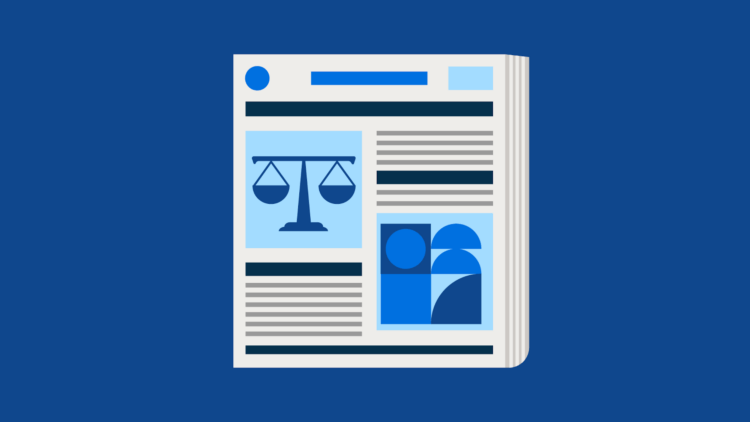Legal professionals are using AI at an astounding rate—and among the tools they’re leveraging in their day-to-day work, ChatGPT dominates.
According to our research, 36% of lawyers who use AI report that they are using generic non-legal AI tools like ChatGPT in their day-to-day work. These options, which are often more flexible and cost-effective than specialized AI tools, allow legal professionals to perform a wide range of tasks, from assisting with drafting to generating insights and ideas.
Recently, OpenAI (the creator of ChatGPT) released ChatGPT Search, a specialized search engine within the ChatGPT environment. Below, we’ll explain how this tool works and the opportunities it presents for lawyers.
Looking for AI tools for lawyers? Learn more about Clio Duo, your future AI-powered law partner.
What is ChatGPT Search?
ChatGPT Search is a search function designed to provide users with highly relevant, real-time information. This feature is unique, blending the capabilities of AI with traditional search tools like Google or Bing.
Essentially, a user can enter a query into ChatGPT Search and, in response, the tool will provide answers directly in the conversation. It can also follow up on previous questions, adjust responses based on the user’s feedback, and pull context from previous questions.
How is ChatGPT Search different from Google and Bing?
ChatGPT Search is integrated directly into a conversational AI environment, meaning that users can conduct searches that are more contextually aware.
When you enter a search query into Google or Bing (say, “what crimes have no statute of limitations in Texas?”), you’ll be presented with a list of results that you’ll need to sort through.

With ChatGPT Search, on the other hand, you will get an immediate answer to your question with links to the resources that the tool referenced in providing its answer. This provides users with the option to dig deeper and visit the sources for more information, if needed.

You may like these posts
How do I access ChatGPT Search?
As of the date of publication, ChatGPT Search is available at chatgpt.com and on the ChatGPT desktop and mobile apps for ChatGPT Plus and Team users. Access to free users will be rolled out over the coming months.
How can legal professionals use ChatGPT Search?
Legal professionals stand to benefit from ChatGPT Search’s features and are already talking about their great experiences with the feature. Here are just a few of the ways that ChatGPT Search can help the legal profession.
- The information is up-to-date: one of the challenges of AI for lawyers is ensuring that the information relied on is current. ChatGPT Search searches in real time, ensuring that users have access to current information.
- ChatGPT Search accesses legal databases and resources: the tool includes specialized legal databases and resources in its searches, meaning that it can pull information from relevant case law, statutes, and legal articles, presenting the potential to save significant time on routine research tasks.
- ChatGPT Search provides comprehensive responses: the answers provided combine various sources, offering a more robust answer that offers insights in addition to basic information. These responses can be extremely valuable for legal professionals who are looking for well-rounded answers.
A note on ethical issues for lawyers
While most legal professionals are already familiar with the ethical issues that can arise when using AI, it bears repeating: AI is not a replacement for a lawyer’s expertise. Blindly relying on search results without conducting additional research (like verifying the accuracy of the information provided and consulting the primary sources) could result in lawyers providing incorrect information—or running afoul of their ethical obligations.
Leveraging ChatGPT Search in your practice
ChatGPT Search could be a game-changer for legal professionals, offering an opportunity to streamline routine search tasks. Like any tool, however, lawyers must keep their ethics and professional standards in mind. Here are just a few of the possible use cases for integrating this tool into your practice.
Preparing for client consultations
Legal professionals could use ChatGPT Search to gather information for client consultations. For example, when preparing for a meeting with a client about a recent regulatory change (or even during the meeting!), a lawyer can use ChatGPT Search to gather up-to-date details, review primary sources, and ensure they are well-informed and ready to deliver value in real time.
Conducting legal research
With its capacity to search legal databases and research, ChatGPT Search can assist with various legal research tasks, including researching legal developments, locating relevant case law, and more. From there, lawyers can use the tool’s helpful summaries as a starting point for preparing internal case summaries or memos.
Drafting documents
Using ChatGPT Search when drafting legal documents could help lawyers locate sample language or templates based on current legal standards. Legal professionals could also use the tool to verify citations or confirm the accuracy of references, allowing them to save time during the proofreading process.
Final thoughts on ChatGPT Search for lawyers
With its real-time search capabilities, helpful summaries, and ability to search legal databases, ChatGPT Search is yet another AI tool that stands to significantly enhance efficiency, accuracy, and the overall quality of client service for legal professionals. However, as with any tool, the key to maximizing its benefits lies in understanding its limitations and using it responsibly.
If you’re on the hunt for a legal AI tool that can help with your day to day work, consider Clio Duo. Our AI-powered feature helps law firms enhance their productivity and sharpen their focus on what truly matters. From completing everyday tasks to transforming information into actionable insights, Clio Duo takes care of it so you can make the most out of your workday and spend more time on strategic work.
Frequently Asked Questions
Can ChatGPT search the internet?
With ChatGPT Search, ChatGPT can search the internet for information based on a user query. Afterwards, ChatGPT will provide a tailored response based on the search query and link to relevant websites.
Can ChatGPT search a website?
With ChatGPT Search, ChatGPT can search websites for information. ChatGPT will then provide a tailored response based on your search query and link to the websites it referenced in its response.
We published this blog post in November 2024. Last updated: .
Categorized in: Technology
Legal AI Virtual Summit 2025
Learn how law firms can unlock AI’s potential and work smarter in this free, CLE-Eligible event taking place on Monday, February 10 from 11:15 a.m. – 5:30 p.m. ET.
Register now





